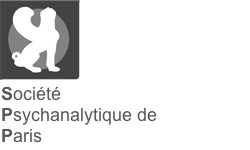|
Résumé :
|
This paper examines the historical, cultural, and biographical context of the work of the late UCLA psychoanalytic psychiatrist Robert J. Stoller, as narrated through the voice of anthropologist Gilbert Herdt, who worked with Stoller over a number of years as a postdoctoral fellow and then a junior colleague. The epistemological and professional goals of Stoller in opening up the field of psychoanalysis to the study of sexual excitement, human sexual variation, a radical revision of homosexuality dynamically, and especially the acceptance of divergent LGBT orientations is examined in the professional development and work of Stoller in the Department of Psychiatry at UCLA in the 1950s–1980s. The final section of the article examines the fieldwork collaboration of Stoller and Herdt in the context of Herdt's Papua New Guinea field site among the Sambia people, with whom he has been working since 1974. Stoller was instrumental not only in supporting LGBT analytic candidates, but in encouraging a more tolerant face-to-face inclusive attitude in research, education, mentoring, and the general Weltanschauung of psychiatry.
|





